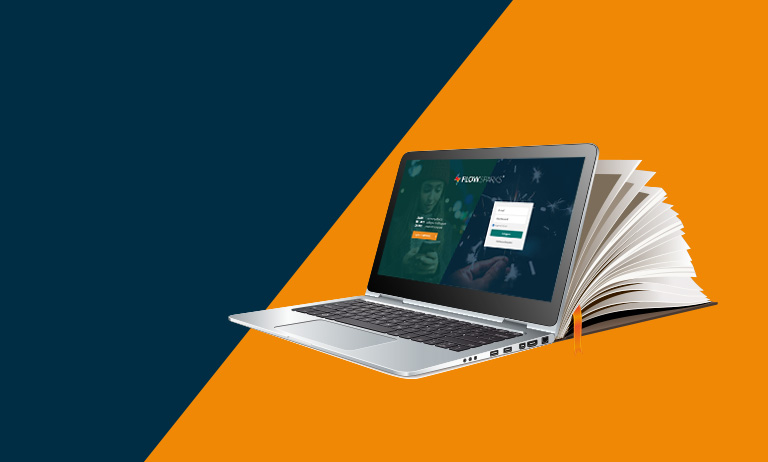The term “knowledge management” has been on the rise for years. In recent years, this term has experienced a major advance in the workplace. We have to deal more and more efficiently with the knowledge that is present within the organization so that everyone has access to it. What exactly is knowledge management? And why is it indispensable within an organization? See here how FLOWSPARKS can help you.

What is knowledge management?
With knowledge management, you organize information or knowledge. A simple description, but that does not mean it is easy to put into practice. There is a great deal of knowledge floating around in an organization. With knowledge management, you ensure that supply and demand for information come together. On the one hand, you offer the person who possesses the knowledge the opportunity to store the knowledge. On the other hand, you ensure that the person seeking the knowledge can also find it. To steer this process in the right direction, it is useful to set up a process:
- Make an inventory of knowledge topics
- Collect the knowledge
- Capture and store the knowledge
- Share the knowledge with the right target groups
- Perform periodic checks to see if the information is still up-to-date
Benefits of knowledge management
The amount of knowledge within an organization will only increase every day. It will never get less. Therefore, there are many advantages to getting started with knowledge management:
- Efficiency: If people can quickly find the right information, tasks will be completed faster and better.
- Knowledge will not be lost: Think about employees who have found a new challenge or are retiring. By storing the knowledge they possess, nothing will be lost!
- New staff: A central point where all knowledge is stored ensures that new staff can get off to a good start.
- Satisfied employees and customers: Employees can perform their work better and faster. They also learn new things. This increases satisfaction. In addition, customers will also benefit directly. The better informed employees are, the better they can speak to customers.
Related: our blog on how to upskill or reskill your employees.
What is a knowledge check?
Since knowledge checks are frequently not graded or recorded, they are not regarded as a formal type of assessment. They’re an excellent approach to gauge how your learners are feeling at any given stage of your eLearning module. Knowledge checks are very useful in business training since they offer quick feedback and verification of knowledge retention. To give students the ability to analyze and evaluate their progress, instructional designers frequently include them in their modules.
Using an authoring tool is the quickest and simplest approach to produce knowledge check questions. A comprehensive set of elements for creating multi-platform interactive eLearning evaluations is available from Flowsparks.
What are knowledge management software tools, and platforms?
Knowledge management comes in many different forms. Think of a:
- Knowledge base or internal wiki: a way of storing information and making it findable.
- Manuals: especially useful in the operation of machines or for going through certain steps and processes.
- CRM system: a central system for maintaining customer relations. A lot can be recorded in such a system, such as contact details, contact moments, messages, agreements, and contracts.
- Authoring tool: an authoring tool is used to create learning modules. These modules are digital and usually interactive. Knowledge and information can be recorded in e-Learning programs. These programs can be consulted by employees.
- LMS: a (Learning Management System) is used for the distribution, reporting, and administration of e-Learning. This system ensures that the right digital modules reach the right people.
So within an organization, different management software tools and platforms are usually used. Often it also differs per department or function group which tools are used. For example, a CRM will primarily be used in an office environment in departments such as customer support, sales, or marketing. An authoring tool or LMS with e-learning modules, on the other hand, can be used even more broadly within an organization. Think of modules with product knowledge for store staff, or modules on safety for nurses, cleaners, or warehouse staff.
For optimal knowledge management, different tools are integrated with each other and each employee has easy access to the right information.
Related: our blog on how to create a continuous learning culture in your organization.
Do you want to improve knowledge management?
As described before, an LMS or authoring tool could be part of your knowledge management strategy. At FLOWSPARKS we believe that organizations deserve full flexibility and autonomy in creating and sharing knowledge, and information. Easily develop interactive e-Learning by combining the Learning Formats, Smart Templates, and Smart Programs in the FLOWSPARKS Authoring Tool. Link this to our extensive Learning Management System (LMS) and you have all the means you need to create the best possible digital learning experience.
Do you want to learn more about knowledge management?
Request your free demo here and we will give you all the information that you need.

